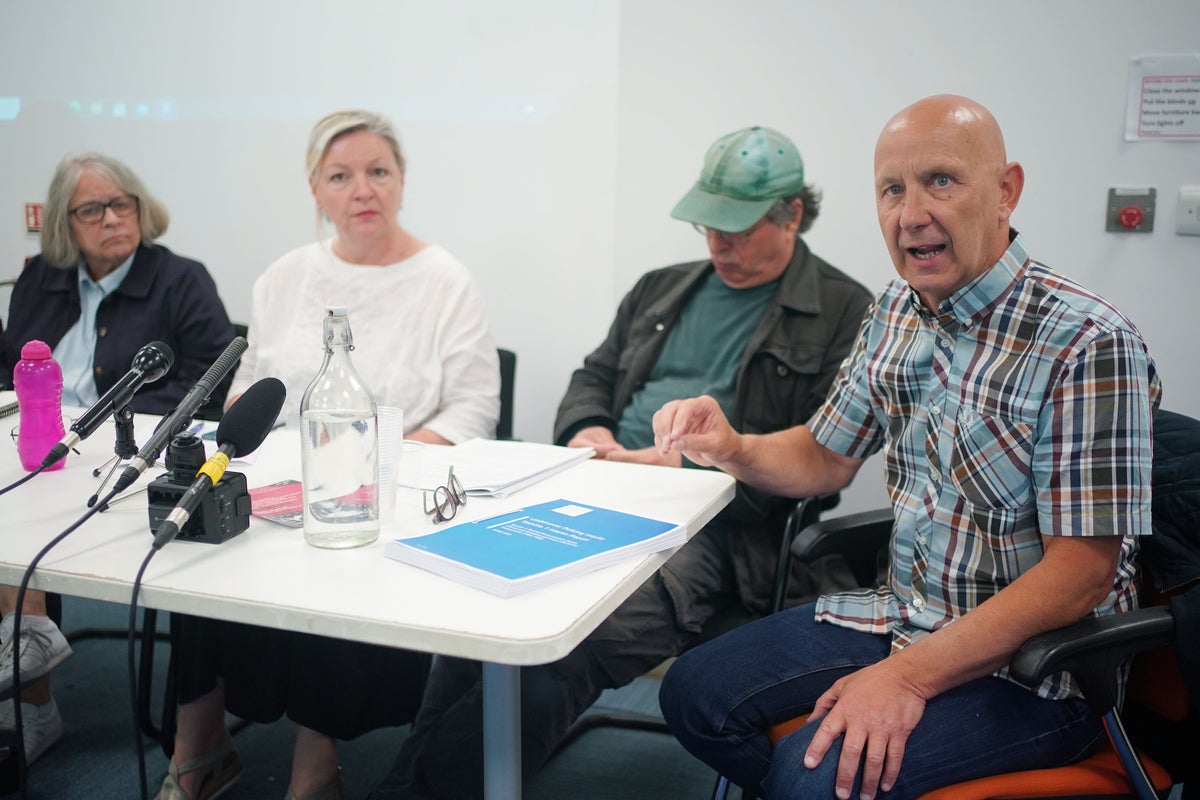
A secret police unit that spied on hundreds of campaign groups over four decades should have been closed down in the first years of its existence, a report has found.
The shadowy actions of the Metropolitan Police Special Demonstration Squad (SDS) were not justified and only three of the groups it spied on were legitimate targets, the first report from a mammoth public inquiry found.
Campaigners who were targeted by the SDS called the findings “devastating” for police, MI5 and the government.
A report focusing on the SDS between 1968 and 1982 was published on Thursday, with future stages set to examine the unit up to 2008, and a successor squad until 2010.
It will examine scandals over women being deceived into sexual relationships, the use of dead children’s names without their families’ consent and spying on justice campaigns including that for Stephen Lawrence.
Chairman Sir John Mitting concluded that if details of what the SDS was doing had been made public in the 1970s, the unit would have been “brought to a rapid end”.
The squad required annual authorisation and funding approval from the Home Office, and in 1976 a group of senior police officers found it should continue work with a minimum of 12 undercover officers.
But Sir John found key issues had not been considered, including long-term undercover deployments meaning intrusion into the personal lives of many hundreds of people, including entering their homes by deception.
Officers accepted positions of responsibility within the groups they were infiltrating and became involved in organising political activity, and their use of dead children’s identities should have been referred to the highest ranks of the Met and the Home Office, he concluded.
Sir John said: “If these issues had been addressed, it is hard to see how any conclusion could legitimately have been reached which would not have resulted in the closure of the SDS.”
Had the use of these means been publicly known at the time, the SDS would have been brought to a rapid end— Sir John Mitting
He said the infiltration of only three of the groups that were targeted at the time could be justified – (Provisional) Sinn Fein and two others that have not been publicly named.
“The principal, stated purpose of the SDS was to assist uniformed police to control public order in London,” Sir John found.
“Long-term deployments into left-wing and anarchist groups did make a real contribution to achieving this end, even though this was or could have been achieved to a significant extent by other, less intrusive, means.
“The question is whether or not the end justified the means.”
He went on: “I have come to the firm conclusion that, for a unit of a police force, it did not; and that had the use of these means been publicly known at the time, the SDS would have been brought to a rapid end.”
Sir John said among 2,600 documents from between April 1975 and May 1978, 1,400 were about people’s identities and lives; 1,200 were records of the meetings and activities of groups that were spied on; and 200 were reports on forthcoming events that might have an impact on public order in London.
He said: “It is a striking feature of the reporting of almost all SDS undercover officers that it contained extensive details about individuals – their political views, personality, working life, relationships with others, and family and private life.”
This is the first report to come from the Undercover Policing Inquiry, which was set up in 2015 by then home secretary Theresa May in response to outrage over various tactics used by undercover officers.
The inquiry, which has so far cost £64 million, is expected to finish in three years’ time.
Baroness Doreen Lawrence, whose campaign for justice for her murdered son Stephen was spied upon, said: “Now that Sir John Mitting has condemned undercover policing as unjustified, I now want to know who ordered the spying on me and my family?
“Who thought it necessary to intrude on a law-abiding family fighting for justice for their son? Who signed off on this unlawful practice?
“Given that the Home Secretary was ultimately responsible for the Metropolitan Police, I am looking to find out which Home Secretary was responsible for the spying into me.”
Welcoming the report, a spokesman for a group of participants in the inquiry said: “The shocking reality has at last been acknowledged – the results of the inquiry so far are devastating for the police, the security services and Government.”
Metropolitan Police Commander Jon Savell said the tactics used in the 1970s bear no relation to how undercover work is carried out today.
He said: “We know that enormous distress has been caused, and I want to take this opportunity to reiterate the apologies made to women deceived by officers into sexual relationships, to the families of deceased children whose identities were used by officers, and to those who suffered a miscarriage of justice because of the actions of SDS officers.
“I want to reassure the public that undercover policing has undergone radical reform over the years, with greater regulation, professional codes of practice, and judicial oversight.
“The way in which undercover policing was conducted in the 1970s bears no relation to how it is conducted today.”







